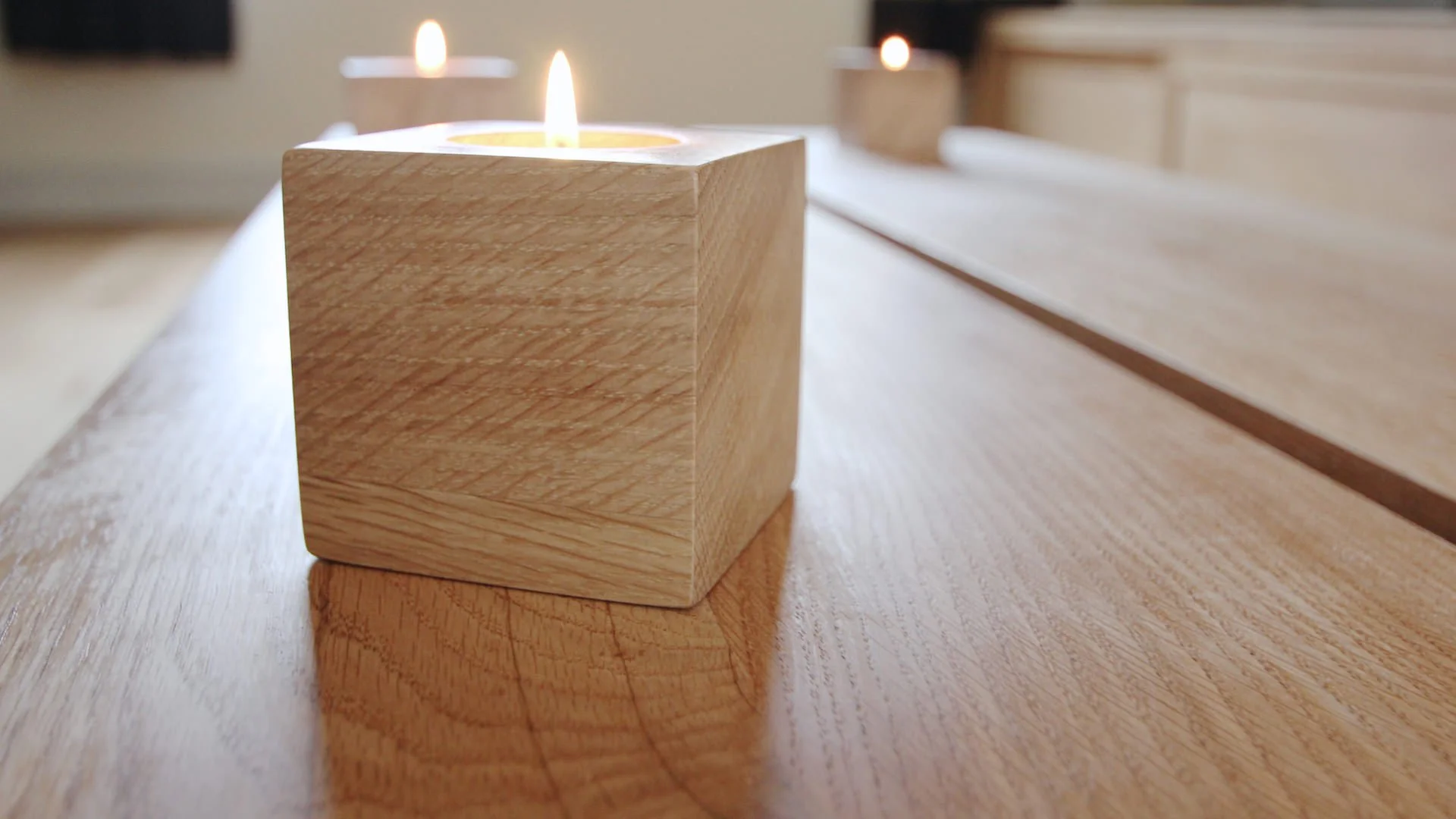Sustainable interior design interview
Designrock Ltd supplier reveals the values behind his work in an in-depth Q&A, demonstrating a dedication to sustainability.
Designrock, a specialist in sustainable interior design, supports local producers that share its environmental ethos. The company recently commissioned a table from Troddenwood, which handcrafts pieces from reclaimed wood.
The design and fit-out firm was impressed with the quality of the bespoke table (pictured), designed in-house & produced by Pip Temple of Troddenwood, as well as the company’s dedication to sustainability. Susie Newman-Turner, Co-founder and Director of Designrock, wanted to find out more about Troddenwood and asked Pip about the values behind his work.
Susie comments: “Pip’s answers offer a really interesting insight into the care that goes into Troddenwood’s work. I feel that we share a passion for nature as well as an understanding that taking a sustainable approach to design is not a process of box ticking; it's an embedded ethos.”
Interview with Pip Temple of Troddenwood:
Q: What inspires you and influences you in your work?
A: It sounds trite to say nature, but living in the countryside is hugely influential. I think my products mirror the way I live my life – simple, clean and natural, without bells and whistles.
Q: What's your approach in marrying aesthetics with function?
A: For me, the aesthetics will normally come from the function. I have an engineering and product design background and find that, usually, if something works wells then it probably looks right, too.
Q: What's your favourite and least favourite thing about working with wood?
A: The grain and the beauty that emerges as you take a rough piece of wood and turn it into a piece of furniture is my favourite part. You never know quite what you’re going to get. Sanding is my least favourite pastime, but it’s an essential part of the process!
Q: Do environmental issues influence the way you source and build your materials?
A: My work is heavily influenced by the environment. All my materials are, without exception, responsibly sourced, and the majority are reclaimed or recycled, having played a different role in a former life.
Q: Is sustainability important to you?
A: Yes, very much so. I use local suppliers wherever possible, and take the time to understand how they work, and where they source their timber from. I’ve built some great relationships with local timber yards – in terms of their business, I’m small fry, but I think they appreciate the quality of the work I do.
Q: What part of the process excites you the most?
A: Turning a customer’s ideas into reality. I have the skills to produce furniture that you can’t go out and buy. Rather than make do with something found on the high street, a customer can have exactly what they imagined. Sometimes this needs a bit of creative problem-solving, but that’s where my design and engineering skills come in. It feels like a lovely thing to be able to do.
Q: What are your greatest challenges?
A: Price can be a challenge. Everything I do is handmade which can be very time consuming and it can make bespoke furniture expensive.
Q: What would you say are your values and ethics when it comes to designing?
A: If I could hang a motto over my workshop door, it would read “when it comes to choosing between the easy way and the right way, do the right thing”. I don’t like shortcuts or fudging things – it doesn’t pay off. I like to know that when I hand something over, it’s right. That just feels right to me, so it’s what I aim for.
There will always be times when things don’t quite go to plan, and you have to make the choice between handing over a product that isn’t quite 100% or making it again. Having happy customers is so important to me, so I’ll always do it again.


